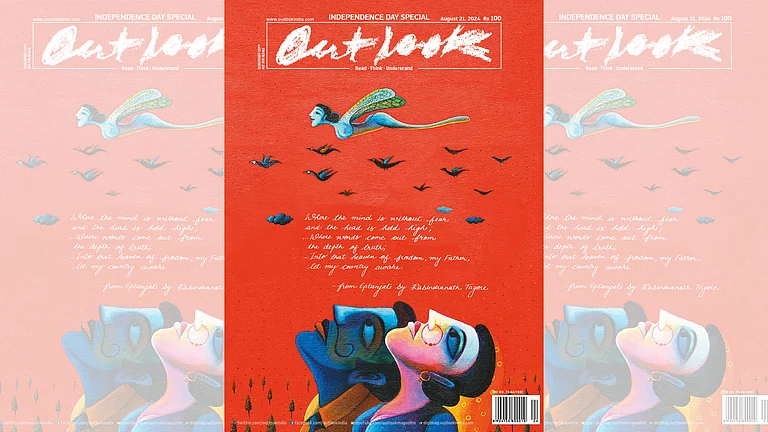These are still early days for the newly-installed military government in Pakistan. Thoroughly tired of the democrats who have just been pushed aside, most people are eager if not desperate to give the new rulers a chance. An early restoration of democracy may be a priority with the Commonwealth-which, incidentally, no one in Pakistan takes seriously-but not with most ordinary people who in a vague sort of way, without being too much concerned with specifics, want things to be put right and the guilty and
corrupt brought to justice. No cause is more popular in Pakistan than that conveyed by the word 'accountability': making the infamously rich disgorge their wealth. At the same time, no cause has been more abused but although the past weighs on public memories (in this instance, public memory not being short) there is a feeling that this time around things would be different.
Meanwhile, public attention is focused on the composition of the National Security Council (NSC) and the cabinet. The announcement of the NSC has given a fillip to cynicism principally on account of Syed Sharifuddin Pirzada, Dr Yaqub-former State Bank governor-and Begum Attiya Enayatullah. The first in this list is one of the country's smartest lawyers who has been legal counsel-or a pillar otherwise-of every military strongman since Ayub Khan's time. The second, in his time at the State Bank, presided over a never-ending series of scandals to hit the banking sector. The third, a charming lady who goes about beautifully coiffured, was a minister under Zia and has never been known for her skill or expertise in higher policy matters, the supposed domain of the NSC.
The cabinet by and large has received better notices. Care has been taken to represent all the four provinces unlike under Nawaz Sharif, when the cabinet was Punjab-heavy and had very little representation from Sindh and none from Balochistan. Most of the faces are fresh. These include Lt Gen Mueenudddin Haider, generally rated a good governor of Sindh till he was removed by Sharif. Then there's Omar Asghar Khan, a young social activist and son of Pakistan's first air force chief, Air Marshal Asghar Khan. In a country where society begums end up getting political preferment, the nomination from Balochistan of Miss Zubaida Jalal-who has never been prominent socially but has worked successfully in the education field-has been particularly welcomed. The heaviest responsibility, however, will be that of the finance minister, Shoukat Aziz, till recently working with Citibank in New York. Reviving investor confidence, pushing up exports, broadening the tax base without triggering social unrest, recovering defaulted money, developing a new working relationship with the donor agencies: he has his work cut out for him.
As the new dispensation settles in, most political parties are confused and bewildered. They know they stand largely discredited with the public. The erstwhile ruling party, the Pakistan Muslim League, is torn by conflicting feelings. Most of its leading lights know that it was Sharif's stupidity and ambition which has brought them to this pass. But as the generals entrench themselves in power, the stalwarts of the Muslim League, historically ever-ready to deal with dictators, know that the 'suspended' assemblies will not be restored and hence their utility as collaborators will never be tested. In one form or the other, this lot has been in power since '85 when Zia lifted martial law and allowed a semblance of democracy to grow. To now be confronted with not only the loss of power but the proximity of total political irrelevance is bringing a wan look to their faces. In the wings there are also emerging and silent moves aimed at securing the leadership of the League in the event that the noose, as looks likely, gets tighter around Sharif.
The Pakistan Peoples Party has a one-point agenda: to cut a deal with the military government with a view to securing Asif Zardari's release and enabling Benazir Bhutto, in well-heeled exile abroad, to return to the country. Ms Bhutto has made almost plaintive cries to be allowed to assist and advise the new government, a stony silence greeting these desperate overtures. Short of such a deal, the PPP is neither in a position to support nor oppose the military government. In a state of limbo thus lies a once proud and mighty political force.
The Islamist parties are also in a predicament. Knowing they can never make an impression on the portals of power through the ballot box, they have always been secret adherents of military interventionism. This military takeover, however, is not delivering anything to the Islamist parties. Gen Musharraf is a 'liberal' in thought and manner with all that this implies in the peculiar circumstances of the subcontinent. When photographed with his family for the first time after the takeover, he was seen holding his two pet dogs in his hands, something that would be anathema to any self-respecting member of the bearded brigade. He is also a self-professed admirer of Kemal Ataturk, who for the religious lobby remains a demon figure. But whereas in different circumstances this 'liberalism' could be a chink in the general's armour, it is not so because his nationalist credentials are secure and above suspicion. He has not appeared to be weak in the face of western protests after the takeover and he has enunciated a blunt line towards India: peace for peace and threats for threats. This puts the Islamist parties in a quandary. In their hearts they do not like his stance. At the same time, they cannot take him on.
All will depend, however, on his performance and to what extent, as a consequence, he is able to enjoy public support. Restoration of democracy is not an immediate priority with the government nor indeed much of a demand with the public which makes it hardly surprising if most people expect Gen Musharraf to be around for quite some time.
(Ayaz Amir writes a weekly column for the Dawn, Karachi)


























